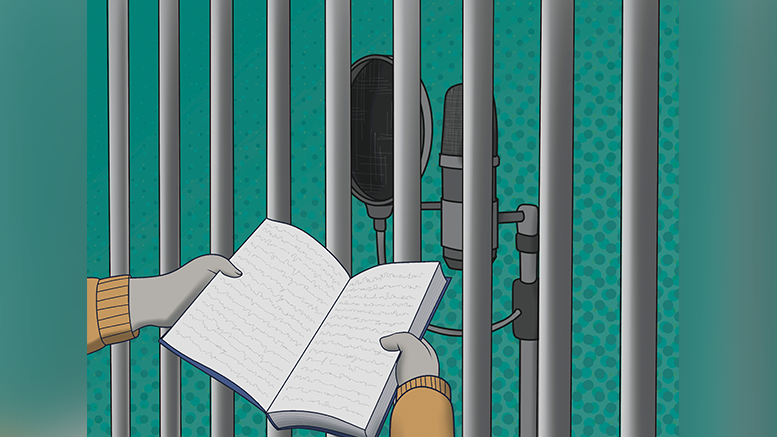To a young child, picture books can instill a lifelong love of reading. But for many families, the incarceration of a parent can interfere with the tradition of bedtime storytelling.
The John Howard Society of Manitoba recently relaunched its long-standing Get the Story Out initiative. This program allows incarcerated people to read to their children or other young relatives by way of CD and MP3 file.
The society aims to support individuals that are in conflict with the law and to provide support to reduce the likelihood of reoffending.
As part of this initiative, volunteers and staff of the John Howard Society bring children’s books to people detained at four institutions in the province — the Winnipeg Remand Centre, Headingley Correctional Centre, Milner Ridge Correctional Centre and Stony Mountain Institution — and record them as they read the book aloud.
Local musician Christine Fellows engineers the recordings and sets them to music. The books, along with their accompanying CDs, are then gift-wrapped and mailed to the child. The MP3 file is provided to the child’s caregiver via email.
John Samson Fellows, literacy instructor of the John Howard Society, considers gift-giving an essential part of the human experience: “One of the fundamental things of being a human is giving a gift to another human, and I think that that’s something that we forget incarcerated people are denied.”
According to Samson Fellows, “it’s a feature of the [carceral] system, not a […] bug, that it separates families and communities.”
“I think people also forget that there’s absolutely no internet in Canadian jails and prisons,” they said. Although prisoners do have limited telephone access, this comes at a cost for personal calls. In Manitoba, sentenced inmates are charged $3.36 per prepaid local and long-distance call and $4.82 per collect call — charges that can accumulate the longer a person remains incarcerated.
These realities can make it difficult for incarcerated people to stay in contact with loved ones and the outside world, something that Samson Fellows has seen first-hand.
“As a literacy instructor, I keep running into the limitations of [the Correctional Service of Canada’s internet ban].” With nearly all Canadian university correspondence courses moving online in recent years, inmates now have fewer opportunities to pursue higher education. On this basis, a lawsuit filed in June by the John Howard Society of Canada and prisoner Ghassan Salah argued that the internet ban violates the Charter of Rights and Freedoms and should thus be declared unconstitutional.
“As the world becomes more connected, the lives of incarcerated people become less so,” said Samson Fellows.
Initiatives like Get the Story Out are intended to fill in the gaps. “We have to make […] interventions where we can and I think maintaining the connections between incarcerated people and their families […] is always a good thing.”
Donations for the Get the Story Out initiative can be made directly to the John Howard Society’s literacy program or by purchasing books for donation through McNally Robinson Booksellers until Sept. 15. For more information, see mcnallyrobinson.com/kids/browse/category/3384/.


